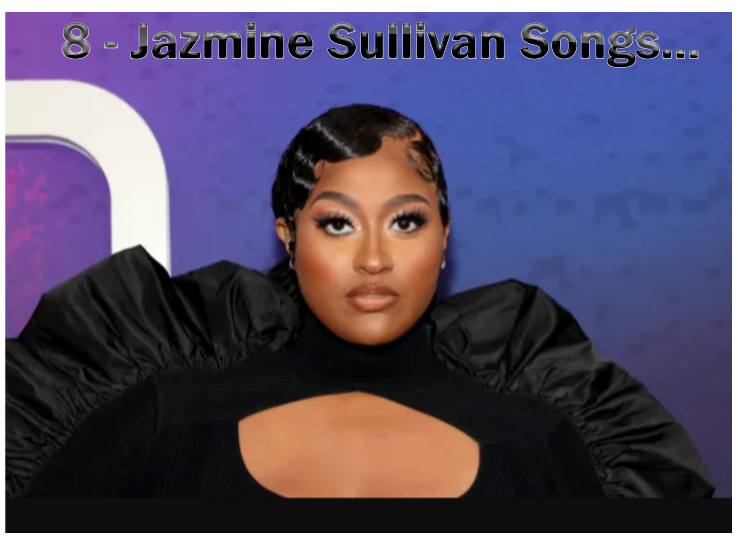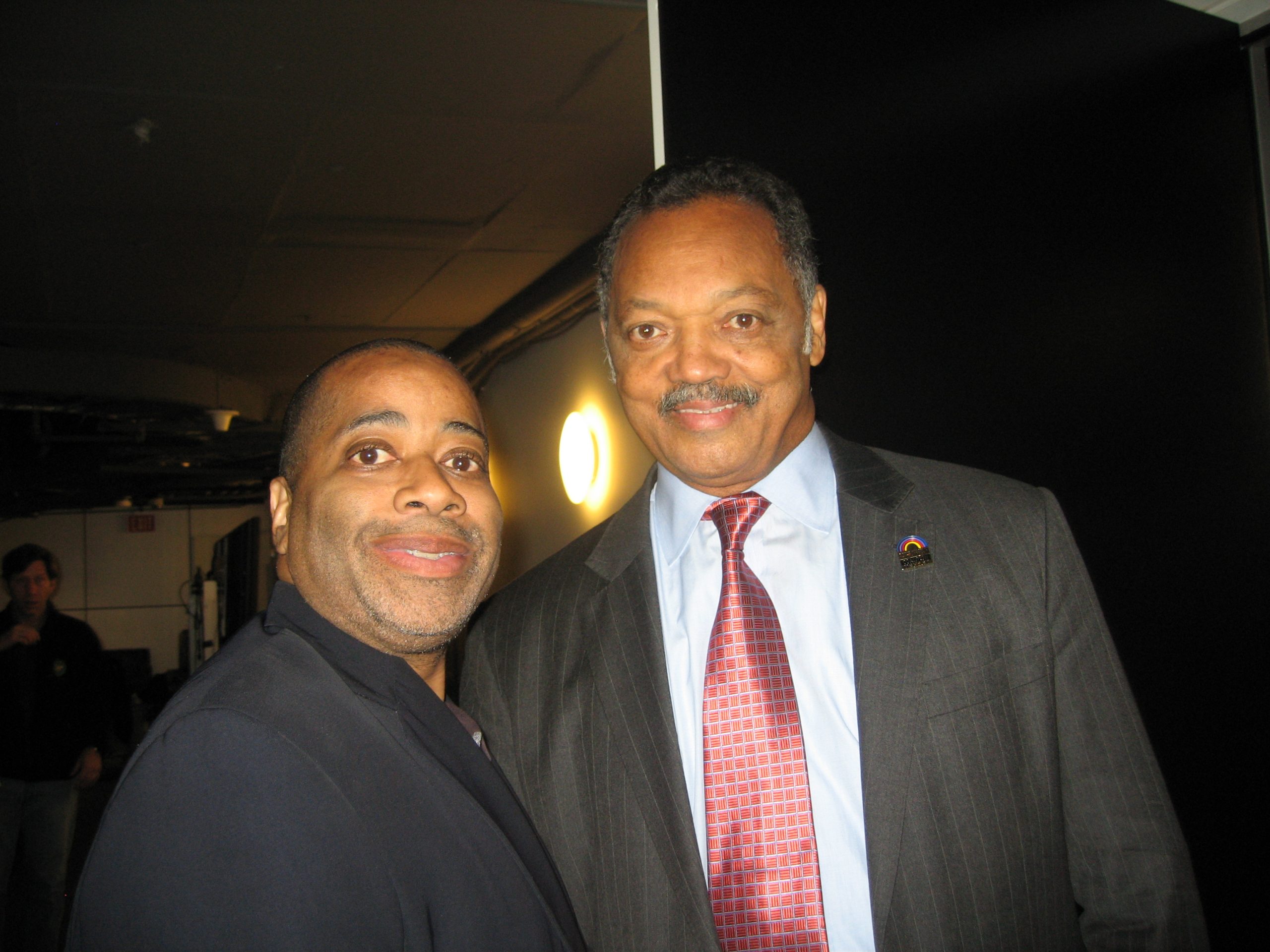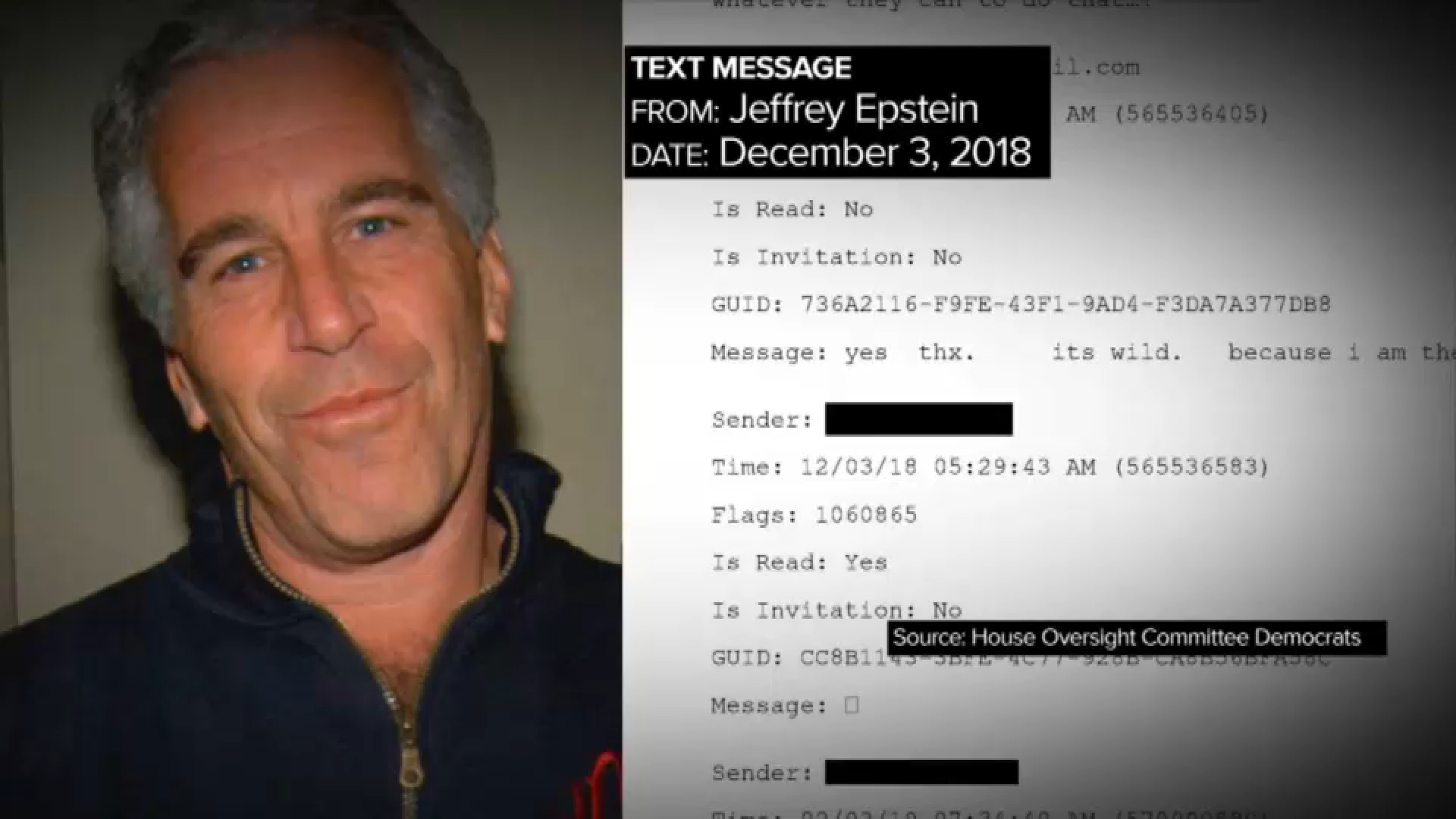(ThyBlackMan.com) Jazmine Sullivan has built her reputation as one of R&B’s most powerful voices by blending raw emotion with masterful storytelling. From bold declarations of heartbreak to intimate reflections on vulnerability, her songs resonate because they feel honest and lived-in. Each track is more than music—it’s a narrative that captures the complexity of love, loss, and self-discovery. The eight songs highlighted here showcase why Sullivan remains one of the most essential artists of her generation.

1. “Bust Your Windows”
Few debut singles pack as much audacity as “Bust Your Windows.” On paper, the concept is simple: a woman catches her partner cheating and retaliates by vandalizing his car. But under Jazmine Sullivan’s control, it becomes a cathartic anthem for anyone who’s ever been wronged in love. The string-laden production, almost cinematic in its intensity, underscores her scorn while her vocals simmer with a mix of rage and vulnerability. It’s both Shakespearean tragedy and Philly neighborhood drama rolled into one.
What’s striking about “Bust Your Windows” is how unapologetically human it feels. Sullivan doesn’t sanitize the messiness of heartbreak; she leans into it, showing that betrayal can drive even the most composed person toward irrational action. Listeners didn’t just hear a breakup song—they heard a reflection of themselves. Her delivery carries enough hurt to make you understand the pain, and enough bite to make you laugh at the brazenness.
It also helped that the song stood out against the R&B landscape of the late 2000s. While many of her contemporaries leaned into club tracks and glossy ballads, Sullivan brought a raw, almost theatrical approach to storytelling. The strings stab like daggers, her phrasing feels deliberate, and the result is a track that balances musical sophistication with street-level relatability. For a debut, it was a daring statement of artistic intent.
Even years later, the song resonates in a world where relationships are dissected on social media in real time. The imagery of smashing glass remains a metaphor for emotional release. Modern listeners—whether they’ve ever physically acted out or not—understand that sometimes the fantasy of destruction is the only way to feel whole again. It’s a track that taps into universal emotions while maintaining its uniquely Jazmine edge.
“Bust Your Windows” continues to thrive because it transcends its era. It’s not just a scorned lover’s song; it’s a declaration of agency. Jazmine Sullivan announced from the start that she wasn’t here to play it safe, and the track still plays as a bold statement of defiance that refuses to fade into the background.
2. “Need U Bad”
Where “Bust Your Windows” was fiery and destructive, “Need U Bad” revealed the softer, vulnerable side of Sullivan’s artistry. Produced by Missy Elliott, the reggae-infused track feels like an intimate confession. Jazmine’s voice drips with longing, her delivery equal parts plea and surrender. She doesn’t dress up the desperation; instead, she leans into the ache of wanting someone so badly that pride falls by the wayside.
The production is deceptively lighthearted, with a breezy island rhythm that almost contradicts the heaviness of her lyrics. That duality makes the song timeless. Listeners can dance to it, nod along to it, or sink into the melancholy hidden beneath its bounce. Sullivan’s rawness elevates the track, proving that vulnerability can be just as powerful as revenge.
The influence of Missy Elliott cannot be understated here. Her knack for blending hip-hop and unexpected sounds gave the song a freshness that helped Sullivan stand out from other rising R&B voices. Jazmine’s ability to channel deep emotional truth into Elliott’s genre-bending production proved she was not a cookie-cutter artist, but one capable of reshaping expectations.
Hearing it now, “Need U Bad” feels prophetic in how it captures the contradictions of love in the digital era. In a time when people perform self-sufficiency online while privately craving intimacy, the honesty of her words cuts deep. She strips away the performative armor and admits, simply, “I need you.” That honesty still resonates for anyone caught between pride and longing.
The song’s endurance lies in its universality. Everyone has experienced the vulnerability of missing someone who completes them in ways logic cannot explain. Sullivan gave that feeling a melody, and years later, “Need U Bad” remains a confession that still feels fresh every time it’s played.
3. “Lions, Tigers & Bears”
By the time “Lions, Tigers & Bears” arrives on Fearless, Jazmine Sullivan has already shown rage and vulnerability. Here, she merges both into a contemplative meditation on fear and love. Over a haunting orchestral arrangement, she declares she isn’t scared of mythical beasts or dangers—but she is terrified of love. The song’s brilliance lies in that inversion: external threats pale in comparison to the risk of giving one’s heart away.
This track highlights Sullivan’s ability to marry metaphor and emotion. The fairy tale imagery draws listeners in, but the core message—fear of intimacy and heartbreak—is deeply relatable. Her soaring vocals add weight to the lyrics, transforming a universal anxiety into a full-bodied ballad that resonates long after the final note.
What makes the song special is its theatrical quality. The swelling strings and Sullivan’s vocal crescendos make it feel like an aria pulled from a modern opera about love and vulnerability. It’s not simply a pop-R&B song; it’s a dramatic declaration that shows her willingness to push beyond genre into full storytelling mode. Few artists of her generation could so seamlessly blend soul, R&B, and almost classical textures into one cohesive statement.
The song feels even more relevant in a world where dating often resembles a battlefield of vulnerability and games. The idea that love is scarier than lions and tigers rings truer than ever. People may fear rejection, ghosting, or betrayal far more than physical threats. Jazmine’s framing captures how emotional wounds cut deeper than external dangers.
“Lions, Tigers & Bears” endures because it’s both poetic and practical. The metaphor is timeless, and Sullivan’s performance ensures it remains one of her most captivating tracks. It’s not just a ballad about fear; it’s a testimony about how love, in all its risks, is still the most daunting adventure.
4. “Holding You Down (Goin’ in Circles)”
When Jazmine Sullivan returned with her sophomore album Love Me Back, “Holding You Down” stood out as a declaration of artistic confidence. Built on hip-hop samples and boom-bap energy, the track finds her stuck in a cycle of toxic love. Yet instead of presenting it as tragedy, Sullivan infuses the record with grit, sass, and head-nodding swagger.
“Holding You Down” reflects her roots in Philadelphia’s rich soul tradition while embracing hip-hop’s edge. Her delivery is assertive, yet it brims with vulnerability. She admits to being caught in unhealthy patterns, but she does so with such honesty that it feels empowering rather than shameful. Listeners aren’t just hearing a confession; they’re hearing resilience in progress.
The samples used in the song are themselves a nod to hip-hop and R&B lineage, including snippets from Nas, Mary J. Blige, and others. By weaving her story into that musical fabric, Sullivan placed herself in conversation with a tradition of artists who confronted the pains of love with unflinching honesty. It was as much homage as it was innovation, proving that her voice could carry the weight of history while telling her own story.
Even years later, the track plays as a snapshot of how toxic relationships feel in real life: messy, repetitive, and addictive. With cycles of love and pain continuing to dominate cultural conversations, “Holding You Down” remains a mirror to modern relationships. People still get caught in those loops, and Sullivan’s delivery assures them they’re not alone.
The production, rooted in samples from Nas and Mary J. Blige, adds another layer of timelessness. It bridges eras of hip-hop and R&B while showcasing Sullivan’s ability to adapt. “Holding You Down” is proof that her artistry doesn’t just reflect emotion—it translates it into a sound that continues to resonate well beyond its release year.
5. “Forever Don’t Last”
When Sullivan released Reality Show, many fans and critics noted it as her most personal project yet. “Forever Don’t Last” sits at the album’s emotional core. Stripped of production frills, the ballad allows her voice to take center stage as she mourns the end of a relationship. It’s raw, unflinching, and devastatingly beautiful.
What makes the song powerful is its honesty. Jazmine doesn’t romanticize heartbreak or offer platitudes. She accepts the painful truth: not all love is meant to last forever. Her voice, at once tender and guttural, carries the weight of that acceptance. The performance feels almost like an open wound—aching, vulnerable, yet resilient.
What elevates the track even further is its universality. The stripped-down instrumentation—just acoustic guitar and Sullivan’s commanding voice—removes any barrier between the singer and the listener. It feels as though she is sitting across from you, sharing her truth without pretense. That intimacy is what allows “Forever Don’t Last” to strike so deeply; it doesn’t just sound like a song, it feels like a personal confession.
Even now, “Forever Don’t Last” remains one of the most relatable break-up ballads of the last decade. In an era where people are often taught to “move on quickly” or “level up,” Sullivan gives listeners permission to grieve. The song acknowledges the devastation without judgment, making it a safe space for those processing loss.
Its timelessness lies in that universality. Everyone, at some point, comes to terms with the reality that forever is not guaranteed. By stripping the song down to vocals and acoustic guitar, Jazmine ensured it would never sound dated. It’s heartbreak distilled into its purest form, a track that still heals listeners today.
6. “Mascara”
On the same album, Sullivan took a different approach with “Mascara,” offering one of her most socially critical tracks. Over a slick, mid-tempo beat, she inhabits the perspective of a woman whose entire identity and livelihood revolves around maintaining appearances for men. At first listen, it might sound like a shallow anthem, but closer inspection reveals a biting critique of beauty culture and materialism.
“Every day, all I do is wear makeup and post for attention,” Sullivan sings with such conviction that it blurs the line between satire and sincerity. The brilliance lies in the ambiguity: is she mocking this mindset, or revealing the very real desperation behind it? The song sparked debates when it was released, and nearly a decade later, those conversations remain relevant in the Instagram and TikTok age.
What makes “Mascara” remarkable is that it never outright condemns its subject. Instead, it presents the perspective without apology, forcing the listener to decide whether they’re hearing empowerment or exploitation. That blurred line mirrors the reality of many women who use beauty and desirability as tools for survival. Sullivan doesn’t judge—she illuminates.
Listening to “Mascara” now, the song feels even more prophetic. The pressure to present a flawless digital self, to live for likes and validation, has only intensified. Jazmine’s performance captures the exhaustion behind the glamour, making it a mirror for the modern influencer era.
The track endures because of its layers. Casual listeners might bop to its catchy beat, while deeper listeners uncover its commentary on gender, capitalism, and self-worth. It proves Sullivan isn’t just a vocalist—she’s a cultural critic whose observations only sharpen with time.
7. “Pick Up Your Feelings”
After a six-year break between albums, Jazmine Sullivan returned with Heaux Tales, and “Pick Up Your Feelings” became an instant standout. It’s a breakup anthem laced with sass, resilience, and self-assurance. Over a slick, modern R&B beat, she tells her ex to collect whatever is left of him and get out of her life.
The power of the song comes from its unapologetic tone. Sullivan isn’t begging for closure or wallowing in loss. She’s standing tall, demanding accountability, and reclaiming her space. Her vocal agility on the track—moving effortlessly from velvety lows to piercing highs—underscores the confidence of the lyrics.
One of the song’s strengths lies in its energy. Rather than being a ballad of sadness, “Pick Up Your Feelings” brims with groove and bounce, making it as enjoyable to dance to as it is empowering to sing along with. This duality gives the song staying power—it’s therapy wrapped in rhythm.
In a cultural climate where conversations around boundaries and self-respect dominate, “Pick Up Your Feelings” resonates as an empowerment anthem. It encourages listeners to let go of toxicity, not with quiet sorrow, but with unapologetic strength. The track feels tailor-made for anyone practicing self-care in real time.
Its continued relevance lies in its blend of timeless vocal artistry with contemporary production. Sullivan proves she can evolve with modern R&B without losing the soul that makes her special. Even years after release, the song still plays as a fresh, invigorating reminder of the power of moving on with dignity.
8. “Girl Like Me” (with H.E.R.)
Closing this list is “Girl Like Me,” a collaboration between Sullivan and H.E.R. that stands as one of the most haunting duets of recent years. Over a minimalist acoustic arrangement, the two vocalists lament how heartbreak can lead women to compromise themselves for male attention. The song feels like a late-night conversation between friends, raw and unfiltered.
What makes “Girl Like Me” particularly powerful is its honesty about vulnerability and insecurity. Both artists admit to the temptation of altering themselves—whether through appearance, attitude, or behavior—to keep from being discarded. It’s a sobering acknowledgment of the pressures women face in modern relationships.
The choice to keep the instrumentation so bare makes the words cut even deeper. There’s no production to hide behind—just Sullivan and H.E.R. trading verses and harmonizing through their pain. This intimacy makes the song feel personal, almost confessional, as though listeners are eavesdropping on a truth not meant for public consumption.
Listening today, the track feels even more urgent. With social media amplifying beauty standards and relationship dynamics, the insecurities Sullivan and H.E.R. sing about are magnified. Listeners, especially women navigating these expectations, find solace in hearing their struggles voiced so clearly.
The song’s timelessness lies in its intimacy. Unlike grand ballads or anthemic breakups, “Girl Like Me” whispers truths that many are too afraid to say aloud. It’s a testament to Jazmine Sullivan’s continued relevance: she doesn’t just sing songs, she tells stories that reflect the rawest truths of love and selfhood—truths that remain painfully familiar to anyone who has struggled with self-worth in the face of love’s rejection.
Jazmine Sullivan’s artistry endures because it is rooted in truth. She doesn’t shy away from the messiness of love, the weight of heartbreak, or the contradictions of self-image. Instead, she leans into them, giving voice to emotions that many experience but few articulate so clearly. Her music bridges vulnerability and strength, intimacy and power, ensuring her songs feel timeless rather than tied to any single moment.
At her core, Sullivan is more than a vocalist—she is a storyteller whose honesty allows her audience to see themselves in her work. That connection is what makes her music last. Whether she is baring her soul through stripped-down ballads or delivering sharp cultural critiques over sleek production, her songs remain a mirror for real life. And as long as listeners seek music that reflects both their struggles and triumphs, Jazmine Sullivan will continue to be a voice that matters.

















Leave a Reply